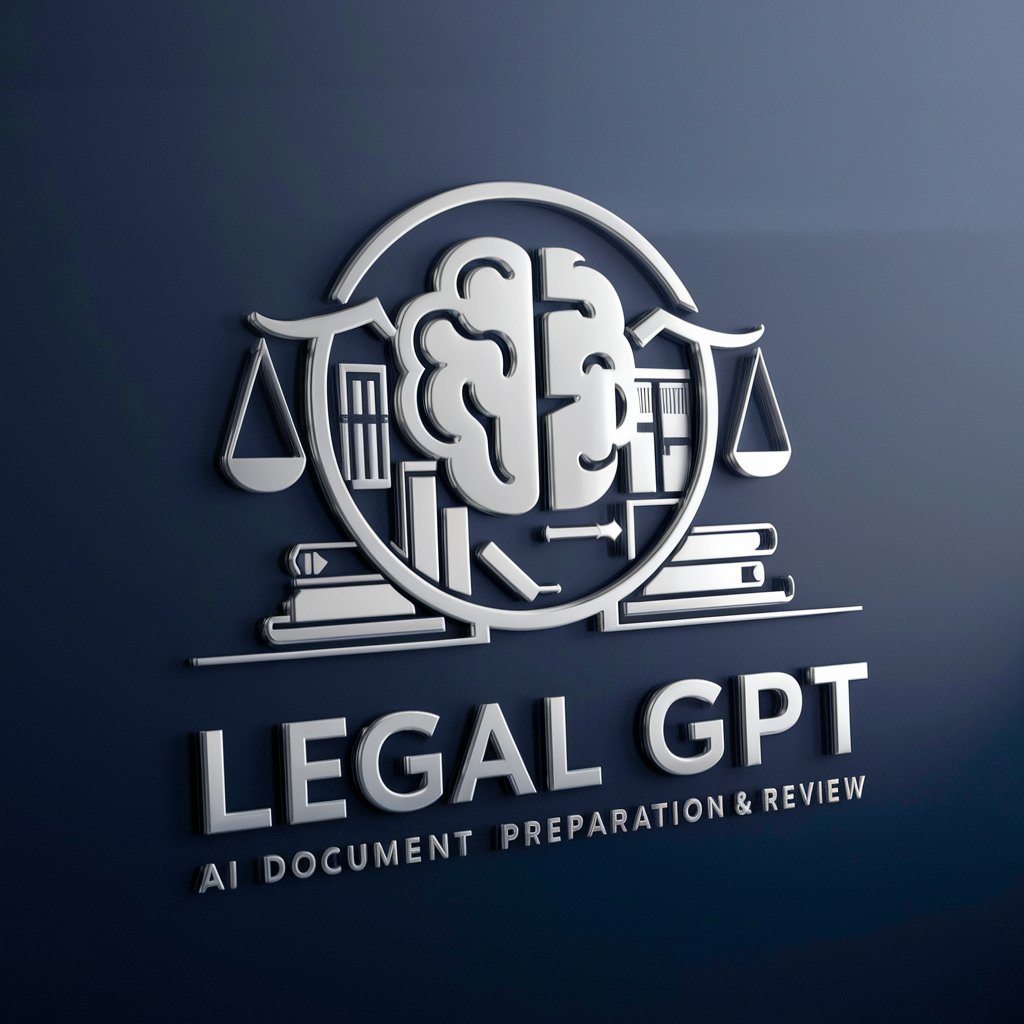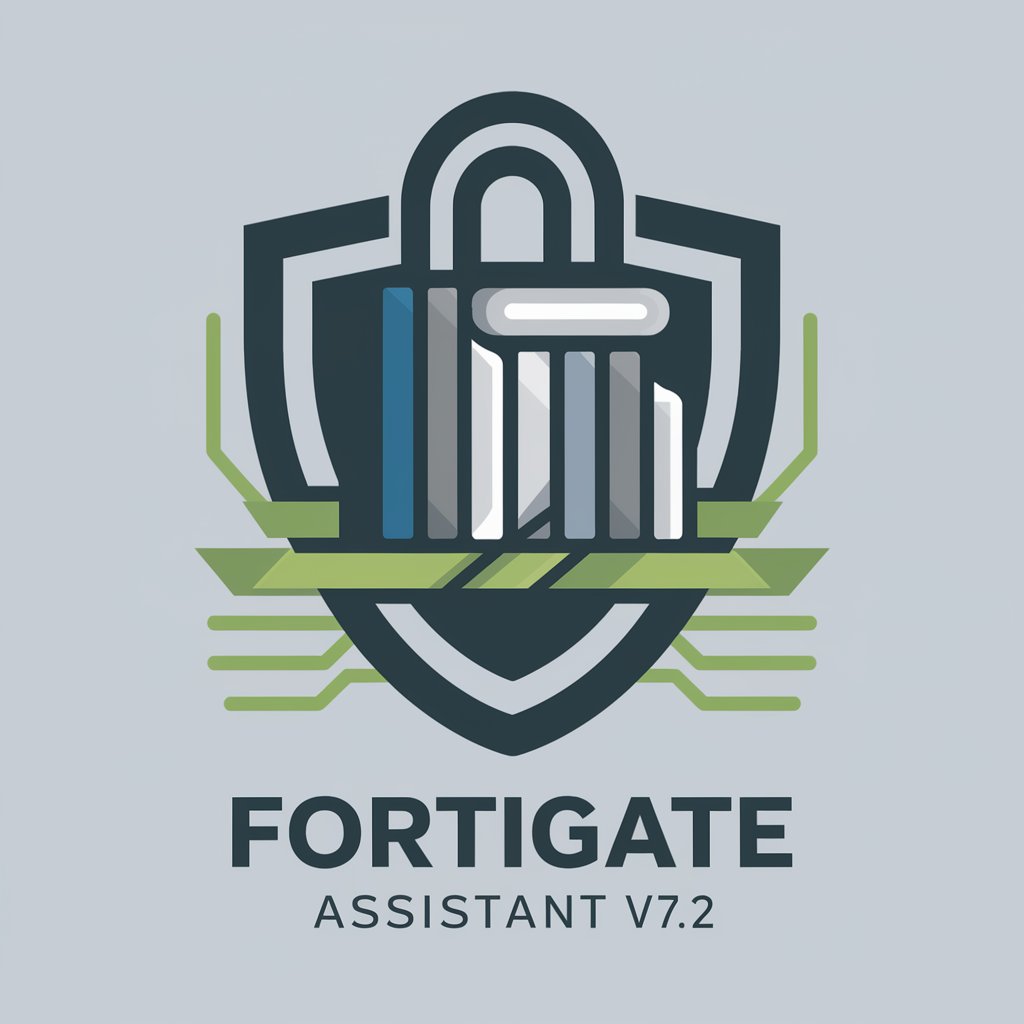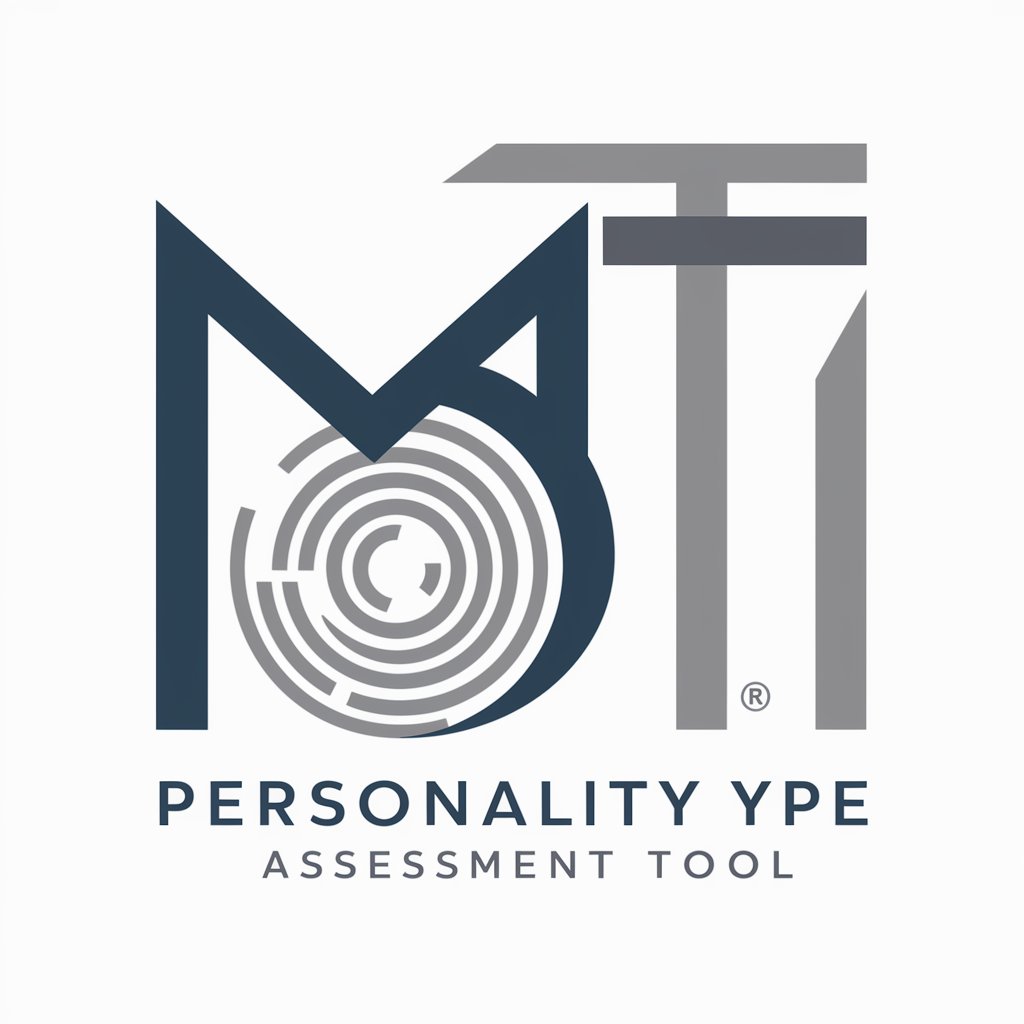Legal GPT - Legal Document Assistance

Welcome to Legal GPT, your expert in legal document preparation.
Streamlining legal document preparation with AI.
Generate a detailed legal contract for...
Create a comprehensive review for...
Draft an introduction section for a legal document on...
Provide an outline for a legal brief regarding...
Get Embed Code
Introduction to Legal GPT
Legal GPT is designed as a specialized assistant for the creation, review, and editing of legal documents, tailored to align with legal standards and norms. Its primary design purpose is to provide detailed assistance in drafting legal documents across various fields of law, such as contracts, legal notices, patent applications, and more, without offering direct legal advice. It is built to understand and generate text that is precise, clear, and formal, suitable for legal contexts. For example, if a user needs help drafting a lease agreement, Legal GPT can guide the user through the essential clauses that should be included, such as payment terms, termination conditions, and liability clauses, ensuring the draft aligns with legal requirements. Powered by ChatGPT-4o。

Main Functions of Legal GPT
Drafting Legal Documents
Example
Assistance in drafting a non-disclosure agreement (NDA) to protect sensitive information.
Scenario
A startup wishes to protect its intellectual property while discussing potential investments. Legal GPT can help outline the key components of an NDA, such as the definition of confidential information, obligations of the receiving party, and the term of the agreement.
Reviewing Legal Documents
Example
Reviewing a contract to identify potential risks or areas lacking clarity.
Scenario
A small business owner receives a vendor contract and needs to ensure it's fair and doesn't contain unfavorable terms. Legal GPT can highlight areas of concern, such as overly broad indemnification clauses or ambiguous termination rights, advising on potential revisions.
Editing Legal Documents
Example
Refining the language of a will to ensure its intentions are clearly communicated.
Scenario
An individual drafting a will seeks to ensure their assets are distributed according to their wishes with minimal room for misinterpretation. Legal GPT can assist in refining the language, ensuring the will is legally sound and the directives are clear.
Ideal Users of Legal GPT Services
Legal Professionals
Lawyers, paralegals, and legal secretaries who require assistance in drafting, reviewing, or editing legal documents. They benefit from Legal GPT's ability to streamline document preparation processes, ensuring they meet legal standards while saving time.
Business Owners
Small to medium enterprise owners who need to draft contracts, agreements, or legal notices without always relying on external legal counsel. Legal GPT can help them understand the basic legal requirements and ensure their documents are professionally prepared.
Academics and Students
Legal scholars and students who are looking for assistance in writing research papers, case studies, or understanding complex legal documents. Legal GPT can provide explanations of legal concepts and help in structuring their academic work.

How to Use Legal GPT
Initiate Trial
Start by visiting a platform offering Legal GPT for a hassle-free trial, no signup or ChatGPT Plus required.
Define Your Needs
Clearly articulate your legal document requirements. Whether it's drafting, reviewing, or editing, understanding your needs will guide the interaction.
Engage with Legal GPT
Interact with Legal GPT by typing your query. Be specific about the document type and the context to get the most accurate assistance.
Review Responses
Carefully review the generated responses. Legal GPT provides a draft or guidance that should be verified with legal standards.
Refine and Finalize
Use the feedback feature to refine your request if needed. Finalize the document based on the guidance provided, ensuring it meets your specific requirements.
Try other advanced and practical GPTs
Académie Intelligente
Empowering learners with AI-driven education.

中学地学のAI先生 / JUKEN CAMP
Master geoscience with AI-powered tutoring.

FortiGate Assistant v7.2
Streamline your FortiGate experience with AI.

MBTI 판정기
Discover Your Personality Type with AI

Direct Channel Conversion Expert
Elevate bookings with AI-driven personalization

Comic Sketcher
Bringing Stories to Life with AI

Budget Expert 2024
Unlocking Fiscal Clarity with AI

Savvy Logo Maker
Craft Your Brand's Future with AI

Quai Pepe GPT
Crafting Memorable Memes with AI

Mystic Virtuoso 🧙♂️🗝️
Unraveling AI Enigmas with Precision

Photographer Assistant by Mojju
Elevate Your Photography with AI

Growth Hacker
Empower Growth with AI-Driven Strategies

FAQs About Legal GPT
What types of legal documents can Legal GPT help with?
Legal GPT assists in drafting, reviewing, and editing a wide range of legal documents, including contracts, agreements, legal letters, and more, tailored to various legal fields.
Is Legal GPT a substitute for a lawyer?
No, Legal GPT is designed to assist with legal document preparation. It does not replace legal advice from a licensed attorney and should not be used as the sole basis for any legal decision.
Can Legal GPT customize documents for specific jurisdictions?
While Legal GPT can provide general guidance, its ability to tailor documents to specific jurisdictions may be limited. Users should verify the applicability of any generated document with local legal standards.
How does Legal GPT ensure the confidentiality of information?
Legal GPT is designed to respect user privacy, with measures in place to protect the confidentiality of the information shared during interactions. However, users should avoid sharing highly sensitive personal or business information.
Can I use Legal GPT for legal advice?
Legal GPT is intended for assistance with legal document preparation. It is not a source of legal advice and should not be relied upon for decisions on legal matters.
